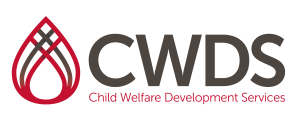CWDS Curriculum
Effects of Early Trauma and Neglect on Brain and Body
Level: Advanced Practice – Lineworker
Credits: 6
Intended Audience: Experienced or newly hired child welfare service personnel working directly with clients.
Intended Objectives:
- Learn basic concepts regarding the organization, functioning and development of the human brain and the interaction of mind and body
- Appreciate the importance of the first five years as a critical period for social, emotional, cognitive and physical development
- Understand how the human stress response works and how repeated exposure to toxic levels of stress effects both brain and body
- Be able to conceptualize behavior problems as a consequence of early neglect and trauma
- Explore modalities of evidence-based intervention that are informed by an understanding of early trauma and neglect
Topics Include:
- Basic concepts of brain function and development
- The building blocks of emotional health vs. emotional distress
- Attachment styles
- The stress response system
- Cross-Cultural and historical considerations
- Implications for mental health diagnoses
- Implications for child welfare and mental health interventions
CalSWEC Competencies Addressed:
1.6 Student understands the influence and value of traditional and culturally appropriate parenting practices and uses this knowledge in working with families.
2.3 Student is able to identify the major family, health, and social factors contributing to child abuse and neglect, as well as positive factors that act to preserve the family and protect the child.
2.6 Student demonstrates a beginning understanding of basic child development and how developmental level affects a child’s physical and psychological responses to abuse and neglect.
2.10 Student understands how attachment, separation, and placement affect a child and family and how these experiences may influence a child’s physical, cognitive,
Posted In:Mental Health & Behavioral Health



